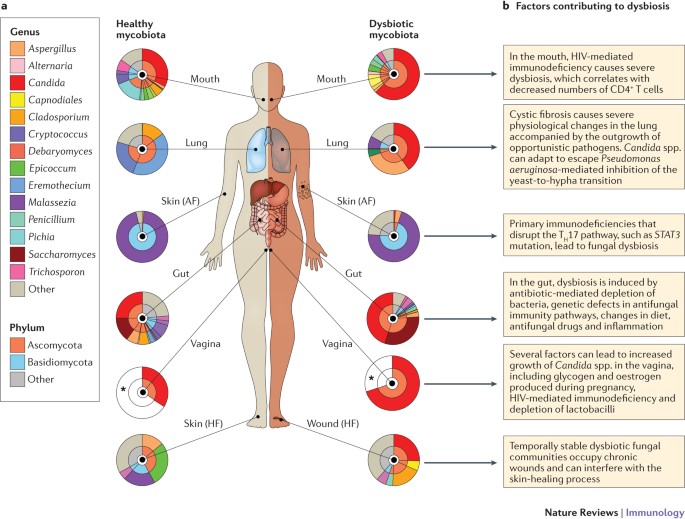
Fungus In Human Gut. It has to remain balanced in order to do your body good. Although research into the mycobiome is still in its infancy its potential role in human disease is increasingly recognised. Albicans is the major fungal species in the human gut. Ghannoum was the only one to discover the importance of fungi in the digestive system.

Common fungi often present in the gut teach the immune system how to respond to their more dangerous relatives according to new research from. Viruses protists archaea and fungi. Albicans is the most frequently detected fungus in faeces of healthy humans. Although research into the mycobiome is still in its infancy its potential role in human disease is increasingly recognised. Candida is typically found in small amounts in the mouth and intestines and on the skin. These complex interactions of fungal species with the human host can be viewed as a spectrum of symbiotic relationships ie.
But while attentionand research dollarshave focused on the importance of bacteria in our gut a crucial player in digestive and general health has been largely overlooked by most.
The human body is home to a complex and diverse microbial ecosystem that plays a central role in host health. Malassezia is a genus found on the skin of mammalians and associated with numerous conditions from dandruff to atopic eczema or pityriasis36 Despite that Malassezia clearly belongs to the human skin microbiota species of this genus have been frequently identified in the human gut microbiota suggesting possible colonisation of the gut7 Indeed the genome of Malassezia shows the presence. Common fungi often present in the gut teach the immune system how to respond to their more dangerous relatives according to new research from scientists at. It causes white lesions that look like cottage cheese on your tongue or inner cheeks. Citrus seed extract The phytochemicals in citrus seeds have been found to have potent antimicrobial properties. Albicans is the major fungal species in the human gut.